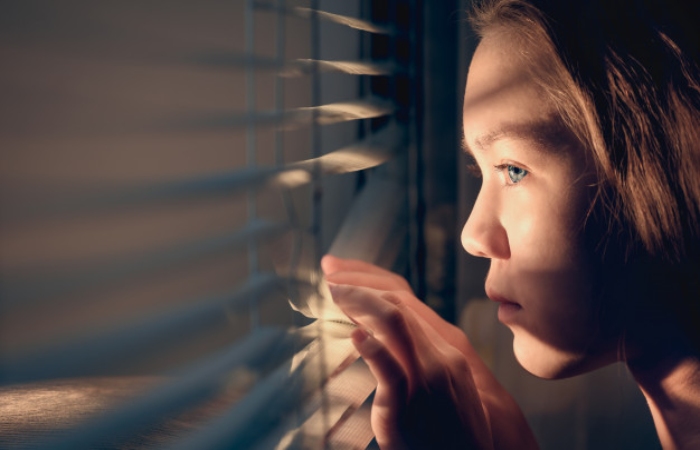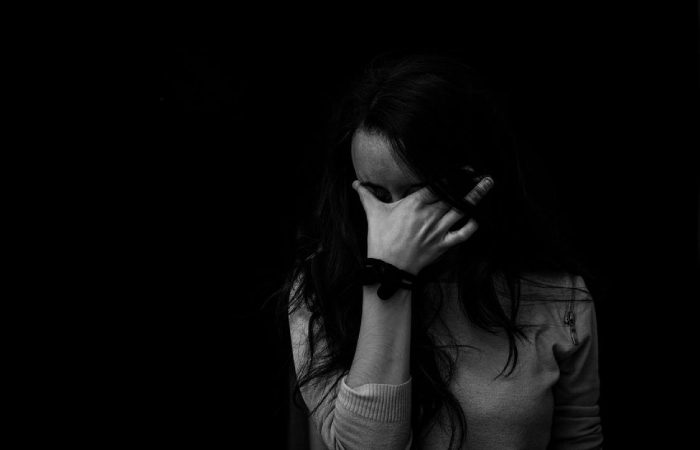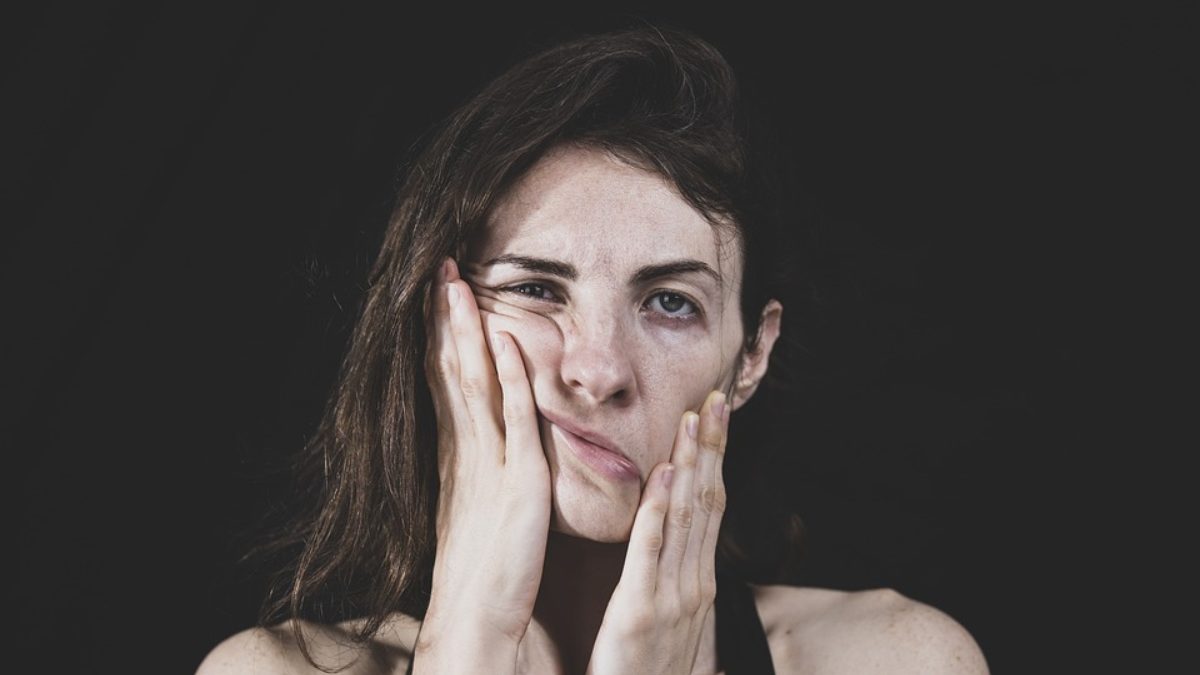Anxiety Disorders
Everything requires to know about anxiety. Essential thoughts: On the best way to Quit Stressing and Begin Living. Anxiety is a distinct negative feeling that shows itself in compelling circumstances.
The nature of anxiety disorders, prevalence, symptoms
What is Anxiety?
Anxiety is a distinct negative feeling that shows itself in compelling circumstances. The article will zero in on three unique states, joined by a typical root “anxiety” (equivalent word – “uneasiness”).
Be that as it may, uneasiness is a character characteristic of an individual inclined to encounter tension and continually experiences it.
This inclination keeps us from pushing ahead, building fruitful professions, and devastating our wellbeing. Furthermore, it is anxiety. We fear individual and work clashes, money related inconveniences, public talking. Besides, it doesn’t make a difference if the issue is genuinely as massive and irreversible as it appears to us.
Also, since mental issues and stress are real factors of current life, you have to adapt. Life Experience sets its expectations for us and, it appears, won’t back off. Whoever doesn’t stay aware of the transformations falls into its grinders. Furthermore, to relate to these turns, to live, one necessity surprising mental wellbeing.

A superior comprehension of what anxiety is and how to control it tends to carry on with an ideal life. Be that as it may, anxiety is one of the most misjudged feelings ever. Here are seven things that emotional wellness specialists ponder uneasiness.
The fundamental symptoms of Anxiety issue:
- Mental symptoms: definite, nonsensical fear of a circumstance or article.
- Actual symptoms: fast breathing or heartbeat, expanded pulse, shuddering or recoiling, perspiring, stifling inclination, sickness, stomach uneasiness, wooziness, deadness, hot blazes, or hot glimmers.
- The fear of death, fear of losing control of a circumstance or losing your mind,
- Or a disorder of the feeling of the real world or a sense of separation.
The most widely recognized symptoms and side effects of anxiety incorporate the accompanying:
- Feeling nervous, upset, or tense.
- A sentiment of approaching peril, frenzy, or fiasco
- Expanded pulse
- Quick breathing (hyperventilation)
- Perspiring
- Quakes
- Feeling powerless or tired.
- Inconvenience focusing or considering something besides your present concern.
- Experiencing difficulty nodding off
- Having gastrointestinal (GI) issues
- Struggle to oversee stresses
- Expectant to keep away from circumstances that create nervousness.

kinds of anxiety disorder
Agoraphobia
Agoraphobia is a kind of tension issue where you dread spots and circumstances that may make you frenzy or cause you to feel caught, vulnerable, or humiliated and regularly attempt to dodge them.

Anxiety disorder due to illness
The anxiety disorder issue because of disease indications incorporates an actual medical condition legitimately brings about extreme nervousness or frenzy.
Generalized anxiety disorder
The Summed up anxiety problem described by nervousness and industrious and excessive worry about exercises or occasions, even routine issues. Stress is unbalanced to the current circumstance, is hard to control, and influences how you feel actually. It frequently occurs related to other uneasiness issues or wretchedness.

Panic disorder
The frenzy issue includes rehashed scenes of abrupt sentiments of severe fear or tension and fear that arrived at a top in minutes (alarm assaults). You may have feelings of approaching disaster, windedness, chest torment, or a quick, beating, or rippling heartbeat (heart palpitations). These fits of anxiety can make the individual concerned that they will happen again or to retain a strategic distance from circumstances where they have occurred.

A panic attack can be frustrating, but it is not life-threatening.
Selective mutism
Selective mutism is a reliable failure to have youngsters to talk in specific circumstances. For example, at school, in any event, when they can speak in different cases, for instance, at home with close relatives who also can influence execution at school, work, or in the public eye.
Separation anxiety disorder
The partition anxiety issue is a youth issue described by nervousness that is extreme for the kid’s improvement degree. It identifies with the detachment from guardians or other people who assume a fatherly job.

Social phobia
The social nervousness problem (social fear) includes significant levels of uneasiness, dread, or dismissal of social circumstances resulting from sentiments of disgrace, weakness, and worry about being judged or seen contrarily by others.

Specific phobias
Explicit fears are described by checking nervousness when the individual presents a particular article or circumstance and a longing to maintain a strategic distance from them. In specific individuals, fears cause alarm assaults.
Anxiety disorder Induced by Substance
The anxiety problem provokes by a substance described by the extreme side. Effects of anxiety or frenzy are the immediate aftereffect of medication misuse, such as ingesting medications, being presented to a harmful substance, or have withdrawal in light of medicines.
Other Specific and Non-Specific Anxiety Disorder
Another Particular and Vague anxiety Issue is a term for nervousness and fears that don’t meet the specific standards for some other tension problem yet are sufficiently significant to be always disturbing.
Causes of Anxiety
It isn’t apparent what the reasons for anxiety problems are. Specific educational encounters, for example, horrible accidents, appear to cause tension issues in individuals who are now inclined to anxiety. Acquired characteristics can likewise be a factor.
Clinical causes
For specific individuals can identify anxiety with a shrouded medical condition. Now and again, the signs and manifestations of uneasiness are the primary markers of a sickness. Furthermore, if your primary care physician speculates that your tension may have a clinical reason, the individual in question may arrange tests to search for indications of the issue.
A few instances of clinical issues that might be identified with nervousness incorporate the accompanying:
- Coronary illness
- Diabetes
- Thyroid issues, for example, hyperthyroidism.
- Breathing issues, for example, persistent obstructive pneumonic illness (COPD) or asthma.
- Wrong substance use or withdrawal
- Withdrawal from liquor, against uneasiness prescriptions (benzodiazepines), or different meds
- Persistent agony or peevish entrail disorder
- Remarkable tumors that produce “battle or flight” response hormones
Diagnosis of Anxiety disorder
On the chance that you notice an adjustment in your psychological state so much that it meddles with regular day to day existence or your friends and family have seen it, at that point, you should contact your family specialist or medical attendant. Besides, you can take a friend or family member with you, if that you feel awkward strolling alone. The family specialist has the information and capacity to start fitting treatment for nervousness problems. Contact your family specialist if:
- anxiety indications keep going excessively long, and for instance, they continue when the distressing circumstance is before.
- The indications of anxiety are excessively rock-hard for you to control.
- Actual manifestations (for example, grumblings of heart issues) likewise happen with anxiety and should be observed in general wellbeing.
- Anxiety emerges for no specific explanation.
- The entirety of the above started to meddle with your day by day life, work, diversions, and relationship issues.
- You need to look for help from a clinician or specialist. You still don’t have the foggiest idea of where, how, and who to contact.
Danger factor’s
The accompanying variables can build your danger of building up an anxiety problem:
Trauma. Youngsters who suffered misuse or injury or who saw horrendous accidents are at a greater danger of building up an anxiety problem sooner or later in their lives. Grown-ups experiencing a horrible mishap can likewise create anxiety issues.
Stress because of sickness. Having a real medical condition or illness can cause significant worry about issues, for example, therapy and what’s to come.
Collection of stress. A significant occasion or gathering of more modest unpleasant circumstances in life can prompt over the top anxiety, for example, the demise of a relative, stress at work, or progressing budgetary concerns.
Character. Individuals with certain character types are bound to experience the ill effects of anxiety problems than others.
Other mental issues. Individuals with other mental problems, for example, sorrow, frequently additionally have an anxiety issue.
Blood family members who have an anxiety issue. Anxiety problems can learn.
Medications or liquor. Medication or liquor use, abuse, or withdrawal can cause or compound tension.
Treatment of Anxiety disorder
Treatment for anxiety problems starts with conversing with your family specialist or attendant. During the discussion, make apparent tension issues and the variables that intensify and mitigate the infection. Self-improvement methods are additionally suggested, given the potential outcomes of treatment and recovery, the disease’s course, and compounding indications.
Treatment objectives
On account of the frenzy problem, the principal objective of treatment is to decrease anxiety frequency and seriousness. In addition, on the history of agoraphobia, it is essential to diminish the propensity to evade spots and circumstances that animate the advancement of extreme nervousness. Also, for summed up uneasiness issues, treatment can help lessen anxiety and sentiments of pressure.
With the conversation of your primary care physician, you should discover the most suitable treatment for you. Your seriousness of condition impacts the decision, the proper treatment proposed, and your inclinations and alternatives. It is prudent to utilize self-improvement procedures following beginning treatment. On the off chance that they don’t work and your uneasiness indications persevere, your primary care physician may encourage you to utilize psychotherapy or prescriptions that are similarly effective medicines. On the chance that every one of the treatment strategies independently didn’t give results, can join them.
Treatment Tolerance
An essential for effective treatment is acceptable participation among specialists and patients. The reason for this is trust – the patient ought not to be hesitant to inform the specialist concerning the indications of the issue and, if fundamental, different points in their lives. Furthermore, for adequate treatment results, you should be motivated to seek treatment and consent to follow the treatment plan endorsed by your primary care physician.
Inaddition, try not to intrude on the treatment that began your own; make sure to illuminate your PCP about the results.
Specialist visits
The specialist will have the option to plan arrangements for you, multi-week to about a month separated until your condition improves. Moreover, much of the time, beginning improvement happens somewhere in the range of four and two months after starting treatment. Further visits to the specialist might be less regular, contingent upon the seriousness of the condition.
Complications
Anxiety issue doesn’t merely mean being stress. It can likewise cause, or exacerbate, other mental and actual problems, for example, the accompanying:
- Misery (which regularly happens related to an anxiety problem) or other emotional wellness issues
- Substance misuse
- Rest issues (sleep deprivation)
- Stomach related or intestinal issues
- Migraine and persistent torment
- Social disengagement
- Issues at school or work
- Low quality of life
- Self-destruction
Anticipation
It is outside the realm of imagination to expect to foresee what makes an individual build up an anxiety concern.
Yet, you can find a way to diminish the effect of manifestations on the off chance that you feel restless:
Move to help immediately. In the same way as other mental problems, anxiety can be harder to treat if you delay.

Remain dynamic. Partake in exercises that you appreciate and that cause you to feel great about yourself. Enjoy the social association and your kind gestures, which can facilitate your concerns.

Maintain a strategic distance from liquor or medication use. Liquor and medication use can cause tension or aggravate it. On the chance that you are dependent on any of these substances. Also, the idea of stopping can cause you to feel restless. Moreover, if you can’t quit utilizing all alone, check with your PCP or discover a care group to support you.
Also read : Alzheimer’s Disease– Symptoms, Phases and Causes.
Related posts
Trending Posts
Clinique Moisturizer-The best face moisturizers from Clinique
Clinique moisturizer – Description The Clinique moisturizer-“Drastically Extraordinary Saturating Moisturizer ” has an improved equation that fundamentally fortifies skin’s dampness…
Novex DS Tablet: Uses, Dosage, Side Effects – WHBT
About Novex DS Tablet This Novex DS tablet is a particular estrogen receptor modulator, otherwise called SERM. It is essentially…






Review Anxiety Disorders – Symptoms, Types, Causes, and Treatment.